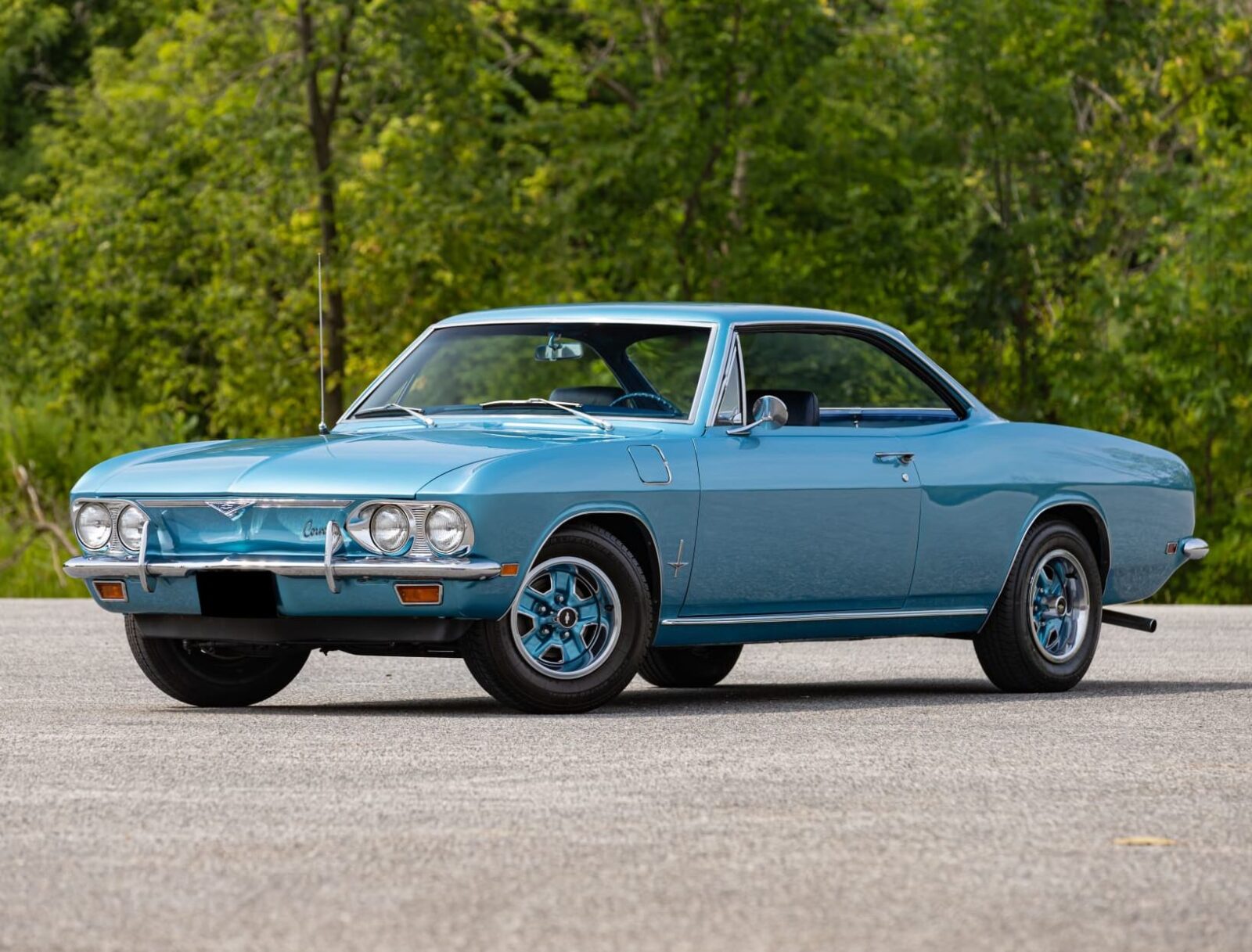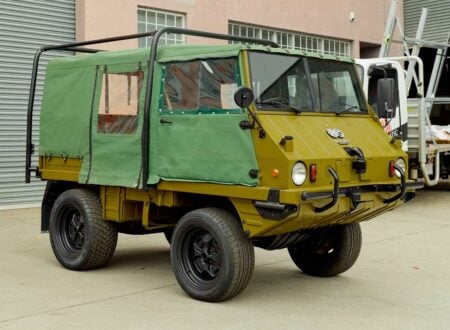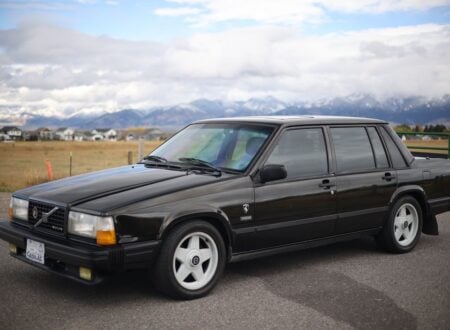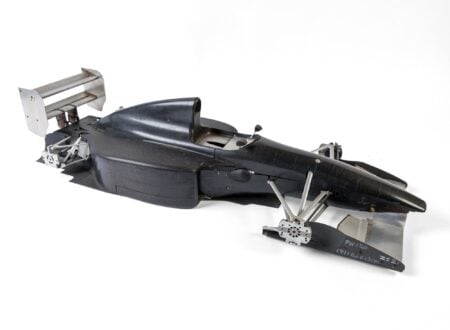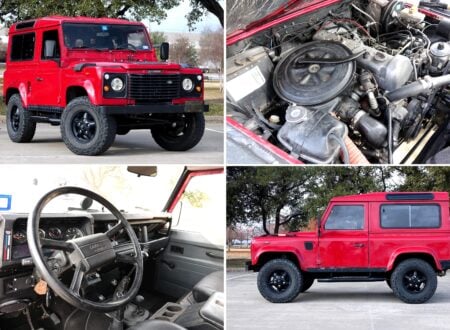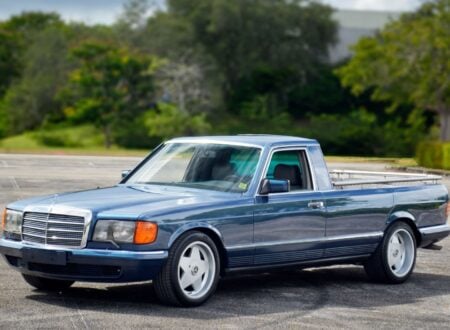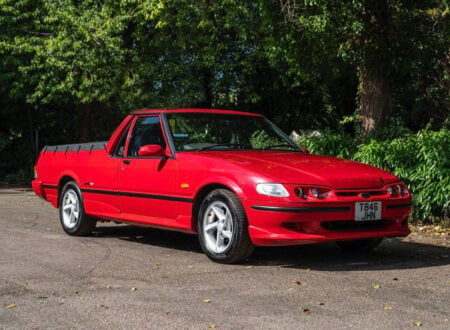This is a 1969 Chevrolet Corvair Corsa, it was built during the final year of production for the model series which had debuted in 1960 with a rear-mounted, flat-six, air-cooled engine, independent four-wheel suspension, and a unibody shell.
The Chevrolet Corvair has been compared to the Porsche 911, and that shouldn’t be surprising, as on paper the two cars do look very similar. That said, the Corvair arrived four years before the 911, and it was also offered in four-door, pickup truck, and van variants.
Fast Facts – The Chevrolet Corvair Corsa
- This 1969 Chevrolet Corvair Corsa was produced as part of the final production year for the model. The Corvair, sometimes compared to the Porsche 911, debuted in 1960 and offered several variants, including four-door, pickup truck, and van models.
- Developed by Ed Cole, the Corvair was Chevrolet’s innovative compact car developed for the 1960s, taking some of its inspiration from the Volkswagen Beetle. It featured an aluminum flat-six, unibody construction, and independent four-wheel suspension, advanced features for its time. The Corvair became the second turbocharged production car in history.
- Ralph Nader’s 1965 book Unsafe at Any Speed criticized the Corvair’s swing-axle suspension, leading to reputational damage. Although a later safety report deemed it no more dangerous than similar cars, Chevrolet replaced the Corvair’s rear suspension setup in 1965, after Nader’s book release.
- This 1969 Corvair Corsa features a 2.7 liter flat-six engine producing 140 bhp, a 4-speed manual transmission, and a well-preserved original interior. With 69,438 miles on the odometer, it’s set to be auctioned by Mecum in early January, offered with no reserve.
The Origins Of The Chevrolet Corvair
In the late-1950s development began at Chevrolet on a new compact car. It would be called the Corvair, taking its name from the popular Corvette and adding “air” as a reference to the air-cooled engine that would power it.
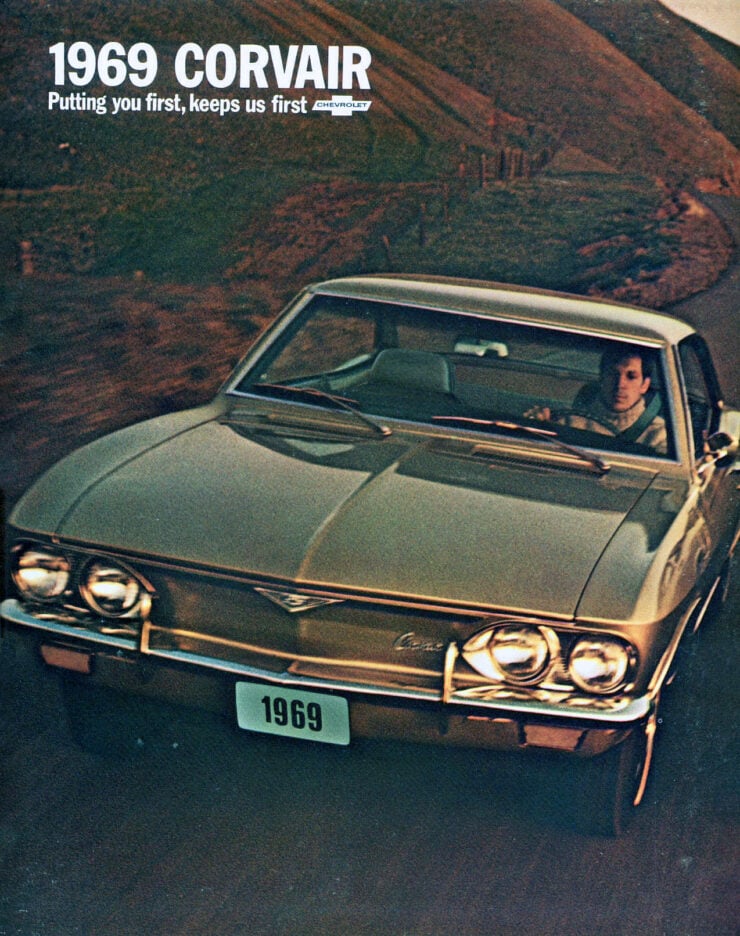

It’s clear that the production version of the Corvair took no small amount of inspiration from the Volkswagen Beetle, which was then a best-selling small car in the United States, and a best-seller across much of Europe.
The Beetle (Type 1) had also helped form the underpinnings for the Volkswagen Type 2 Van, which used the same drivetrain and many of the same mechanical components, with a newly designed, and stronger, platform chassis.
This flexibility of the original Volkswagen design would be a direct inspiration for the Corvair, which would also be offered in automobile and van variants sharing many components including the engine, transmission, suspension, brakes, and more.
The god-father of the Corvair was Ed Cole, a highly-respected engineer who had risen up the ranks of General Motors to become general manager of Chevrolet and a General Motors vice president.
Though he was working in executive roles for the latter part of his career, engineering remained his true passion, and it was largely thanks to him that the Corvette and small block Chevrolet V8 proved to be such wildly successful designs.
The engineering of the Corvair was advanced for the time, even the earliest iterations of the model had independent four-wheel suspension, steel unibody construction, wider and lower-profile tires, and an engine that was primarily made of aluminum to lower weight. All of these design cues are now commonplace on modern production vehicles.
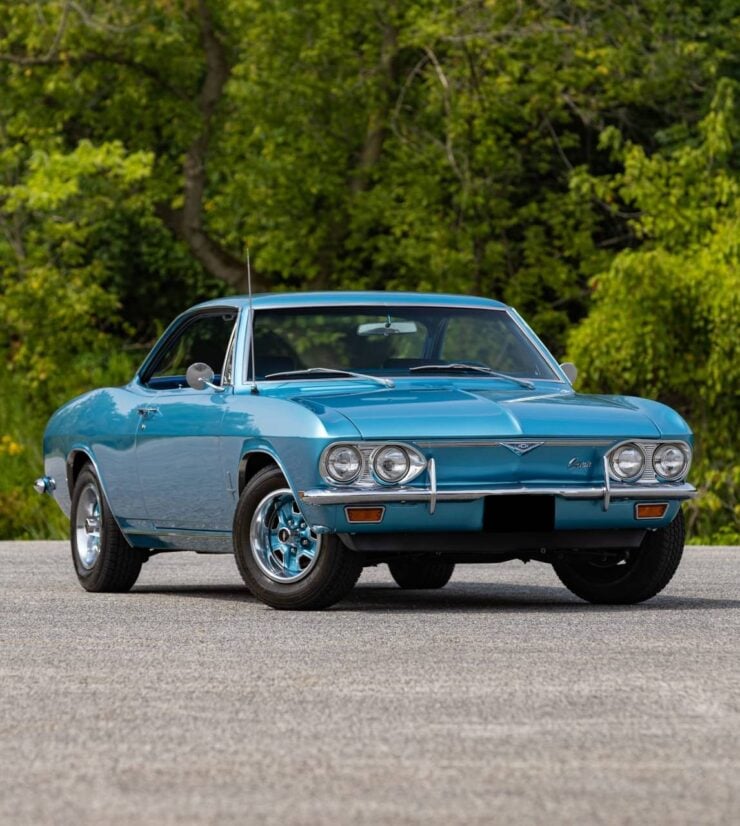

Perhaps the single most famous design feature of the Corvair was its rear-mounted, air-cooled flat-six. An unusual engine choice for an American manufacturer that was somewhat reminiscent of the rear-mounted flat-eight used on their earlier Tucker 48 – though the Tucker engine had famously started out as an aircraft engine that was then converted to liquid-cooling.
The Corvair was unveiled to much fanfare, Time Magazine put Ed Cole and the 1960 Corvair on the cover of one of their 1959 issues and Motor Trend named the Corvair the 1960 “Car of the Year.” There were some early teething problems including overheating issues, but by 1960 the Corvair made up 13% of Chevrolet’s sales – a solid debut.
The Corvair would be sold across two generations, the first ran from 1960 to 1964, and the heavily revised second generation model was sold from 1965 until 1969. The turbocharged version of the Corvair would be just the second turbocharged production car in history after the Oldsmobile F-85 Turbo Jetfire, which had been released earlier that same year, 1962.
It’s not possible to write about the Corvair without discussing Ralph Nader and his 1965 book Unsafe at Any Speed: The Designed-In Dangers of the American Automobile. The first chapter of this book was dedicated to the Corvair, and its swing-axle suspension design which was deemed unsafe by some.
The book attracted much media attention and it wouldn’t be until 7 years later in 1972 that a safety commission report from the Texas A&M University showed that the early Corvair was no more or less dangerous than contemporary compact cars.
The rear suspension on the Corvair was replaced in 1965, the same year Nader’s book debuted, with an improved fully-independent trailing arm rear suspension arrangement, but in many respects the damage to the Corvair’s reputation had already been done.
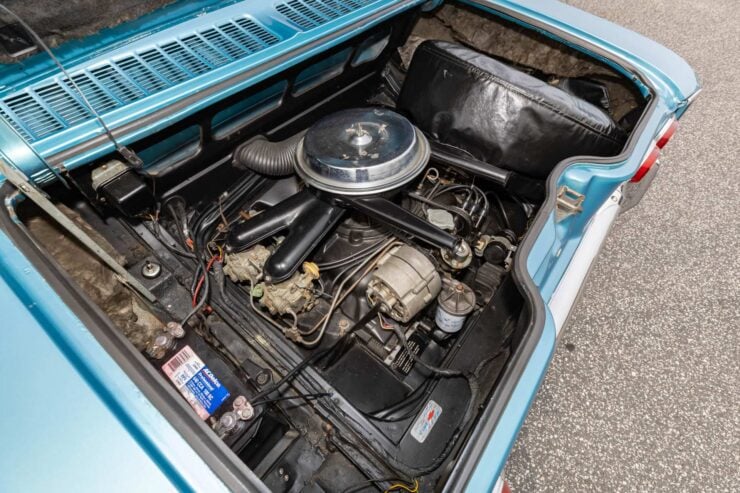

Ultimately, the Corvair would leave production in 1969 and be replaced by the Chevrolet Vega, a far more standard compact car design that would sell well, and remain in production for much of the 1970s.
The 1969 Chevrolet Corvair Corsa Shown Here
The car you see here is a 1969 Chevrolet Corvair Corsa, meaning it’s the highest-performance naturally-aspirated version of the Corvair, producing 140 bhp from its 2.7 liter flat-six.
The Corsa model came as standard with an uprated instrument panel featuring a 140 mph (230 km/h) speedometer, a 6,000 rpm tachometer, a cylinder head temperature gauge, a resettable trip odometer, a manifold vacuum/pressure gauge, a fuel gauge, and an analog clock with a sweeping second hand.
The example you see in this article has 69,438 miles on the odometer and it’s 3,271 of the 6,000 produced for 1969. Importantly, it has the 4-speed manual transmission rather than the less-desirable 3-speed unit, and it maintains its original AM radio and heater, and its original interior.
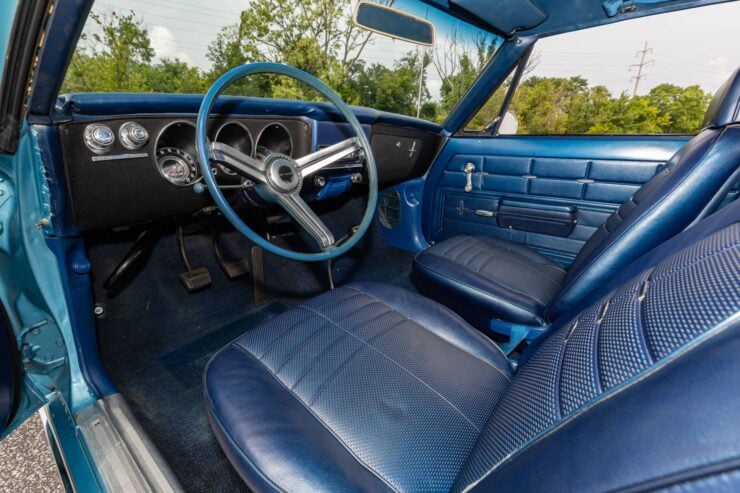

The car now has a rebuilt front end, new front drums and shoes, and new rear shock absorbers, rear shoes, and brake hoses. It’s finished in Blue with a Blue interior, and Blue-finished steel wheels on all four corners.
It’s now due to roll across the auction block with Mecum in early January with Mecum, and it’s being offered with no reserve. If you’d like to read more about it or register to bid you can visit the listing here.
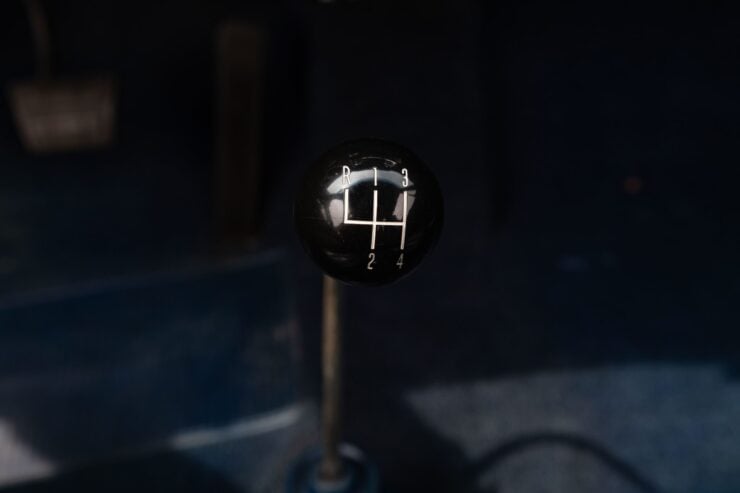
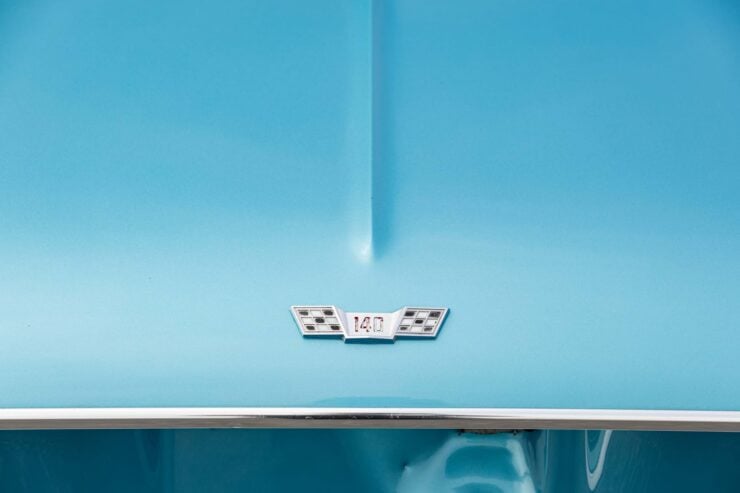
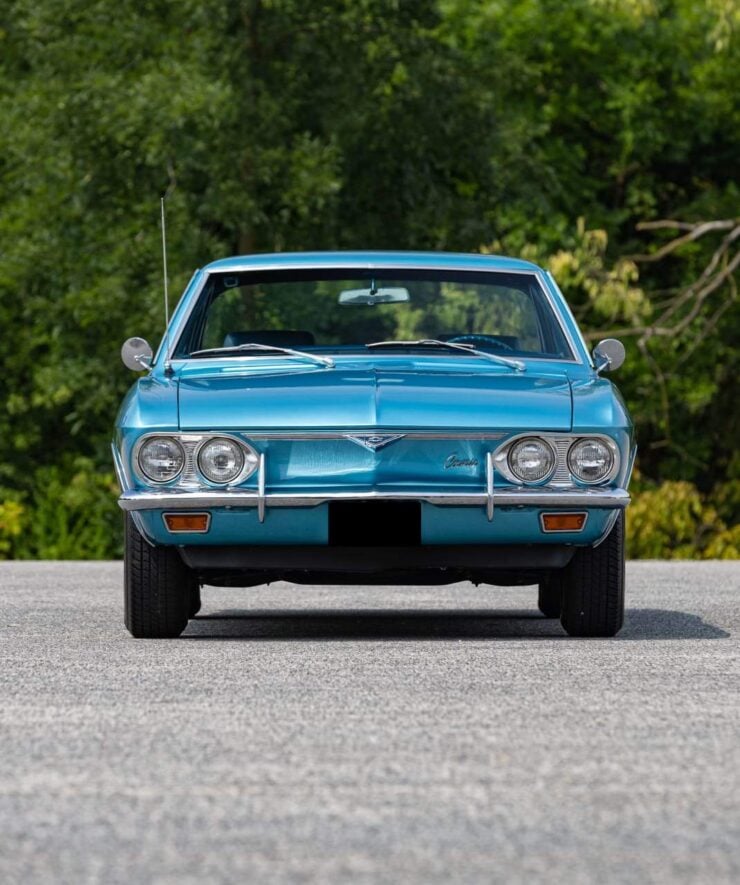
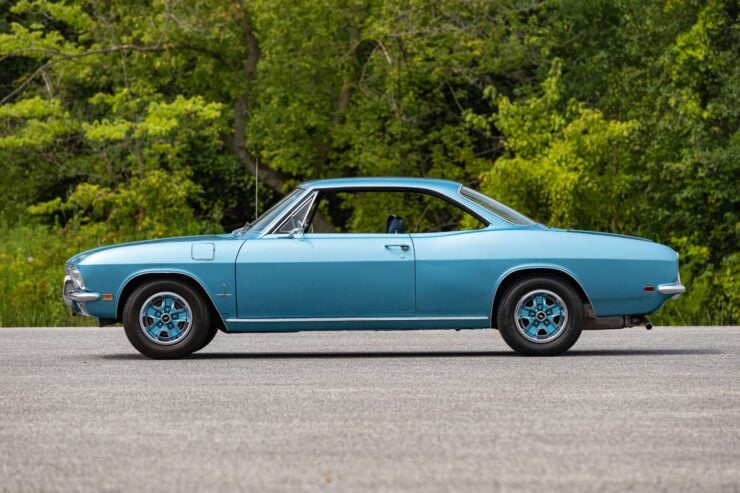
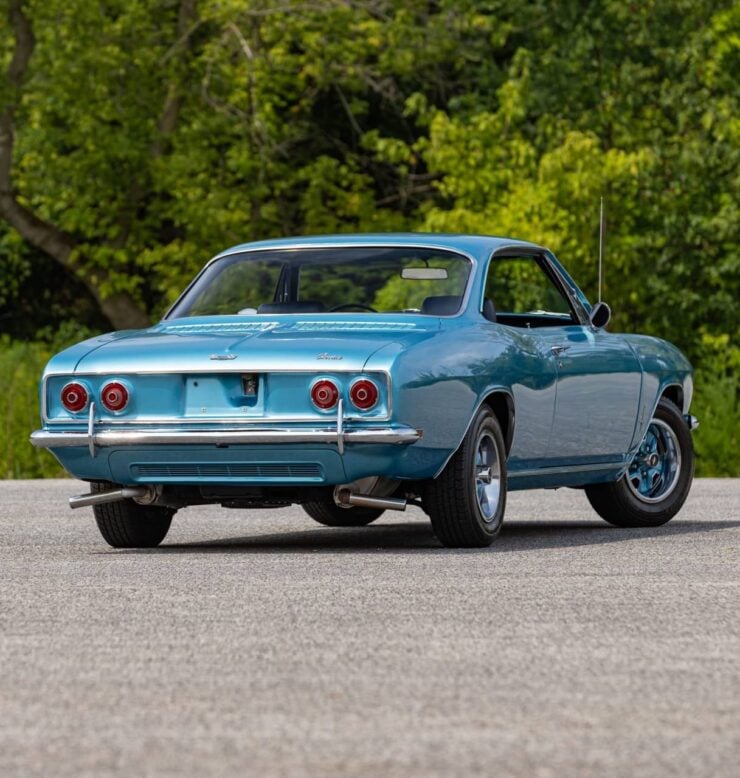
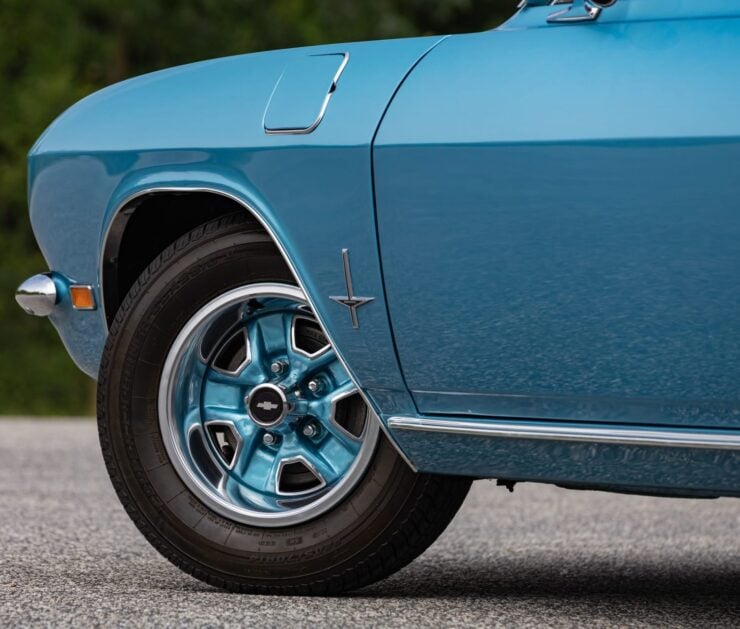
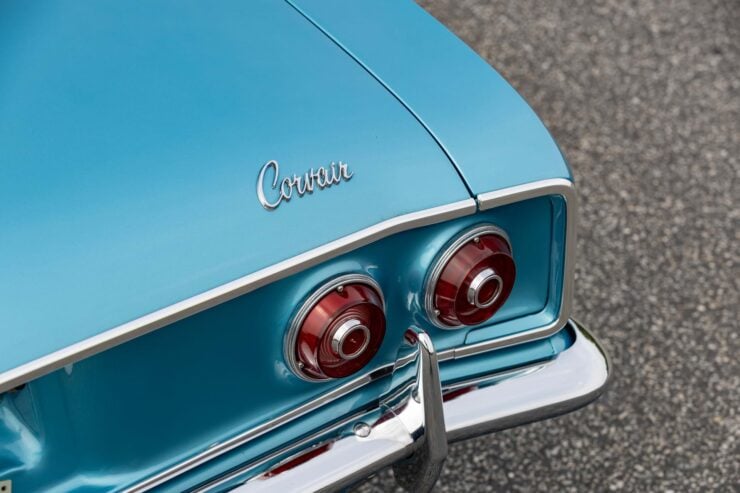
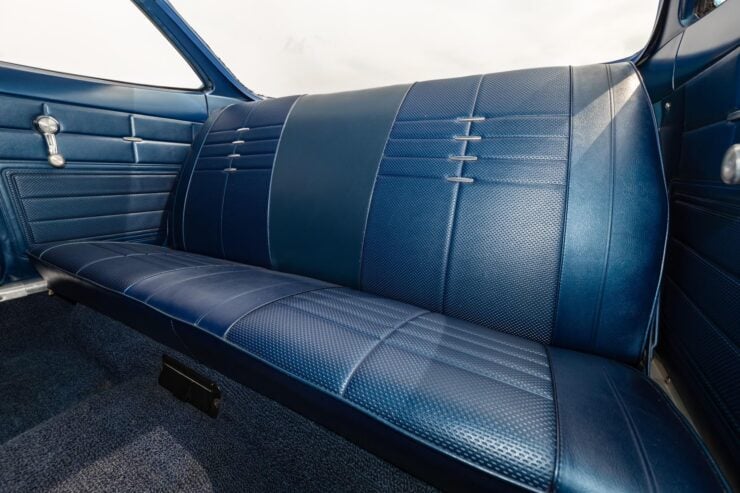
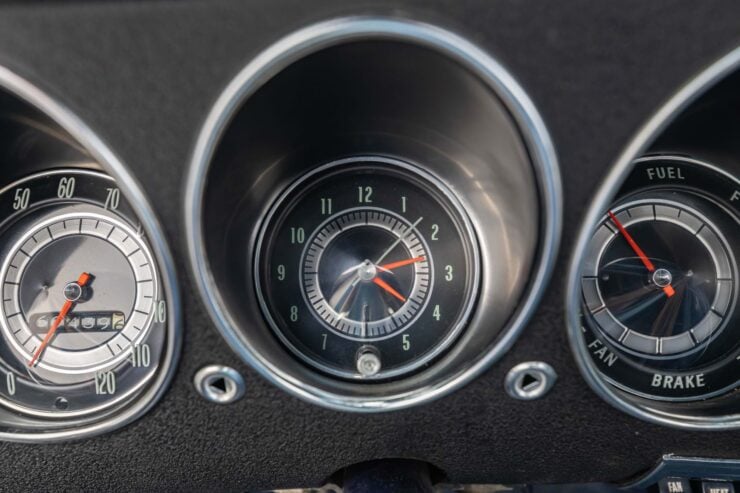
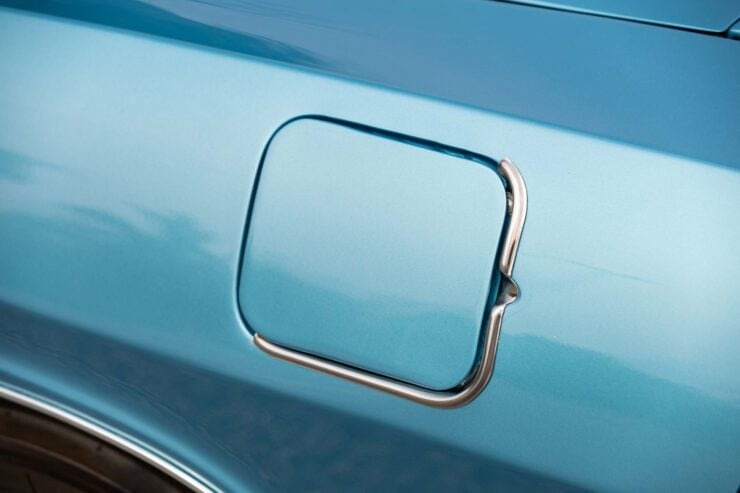
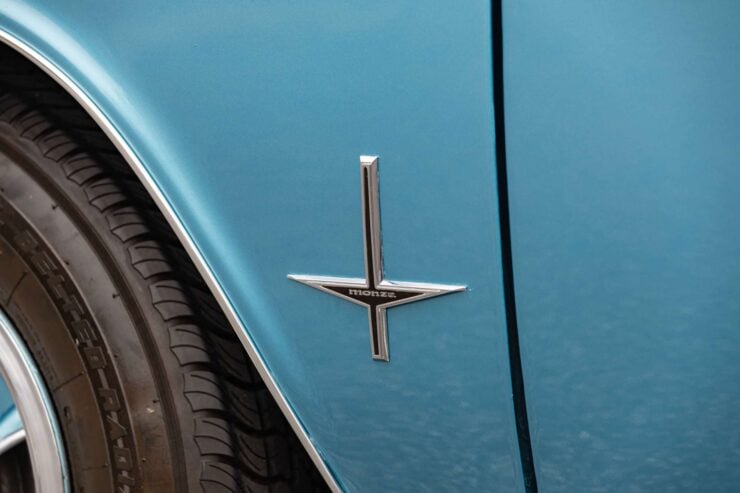
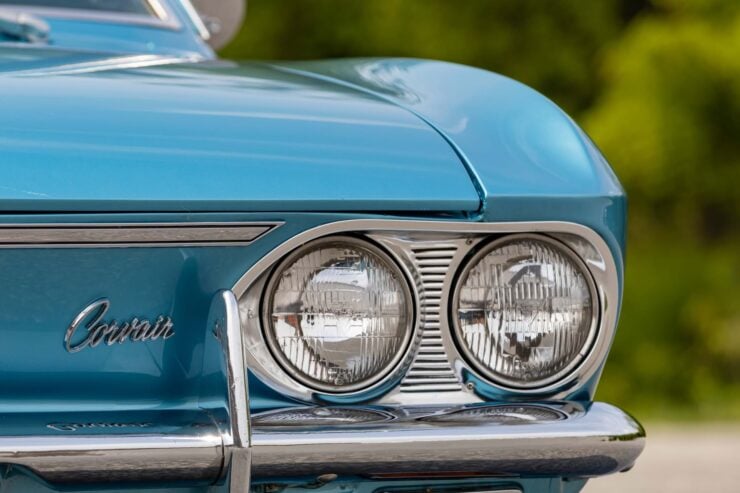
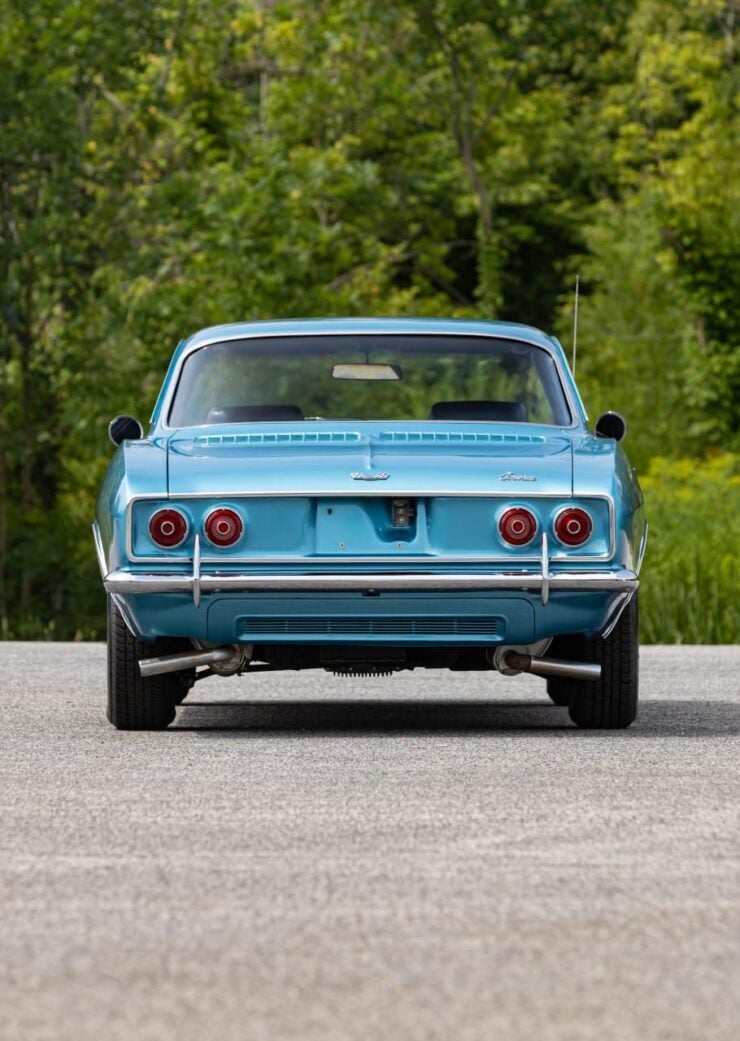
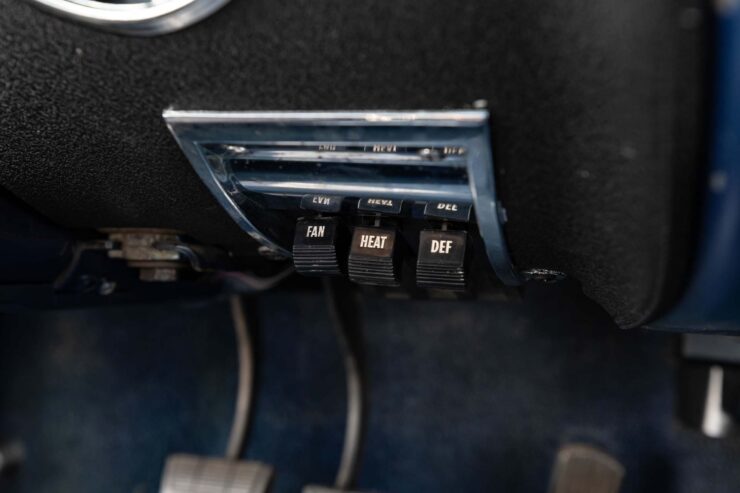
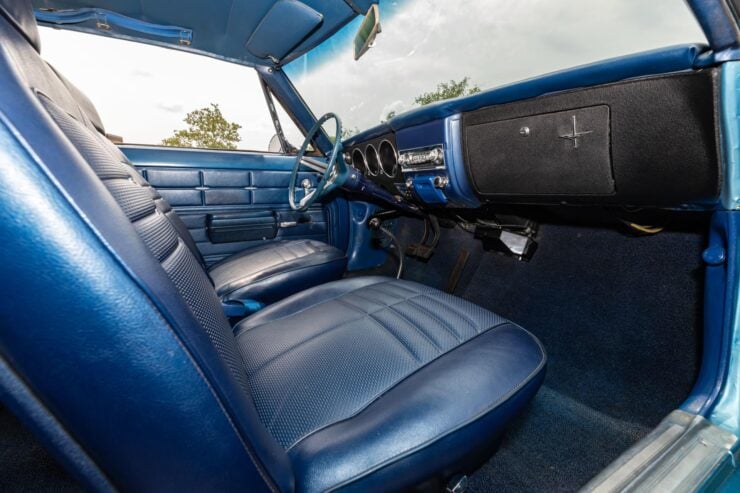
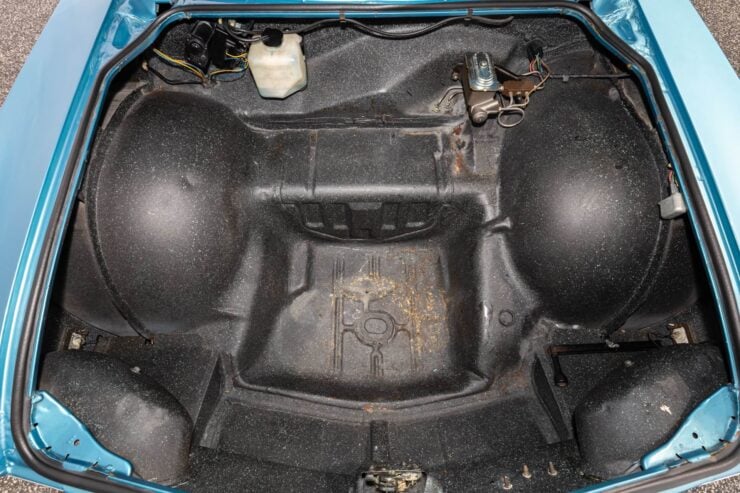
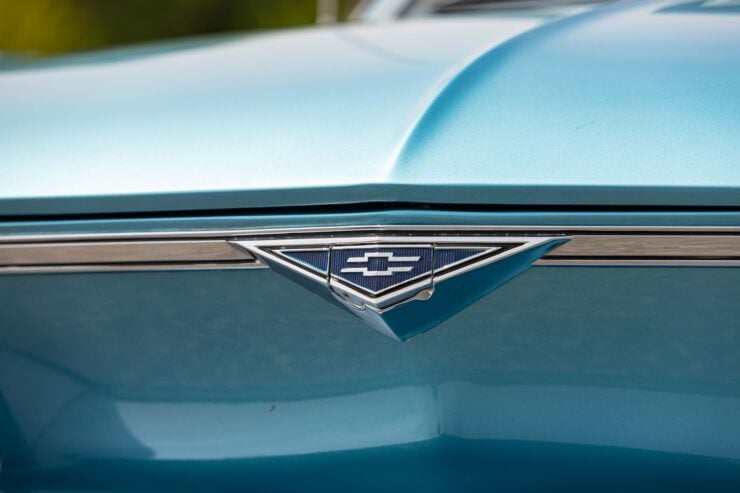
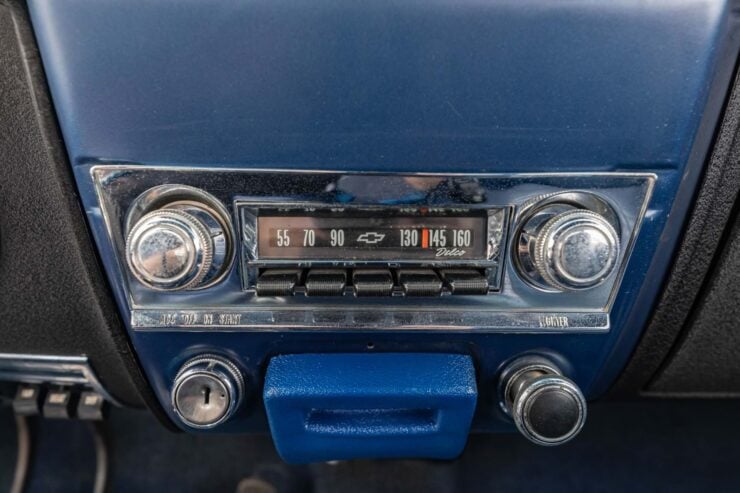
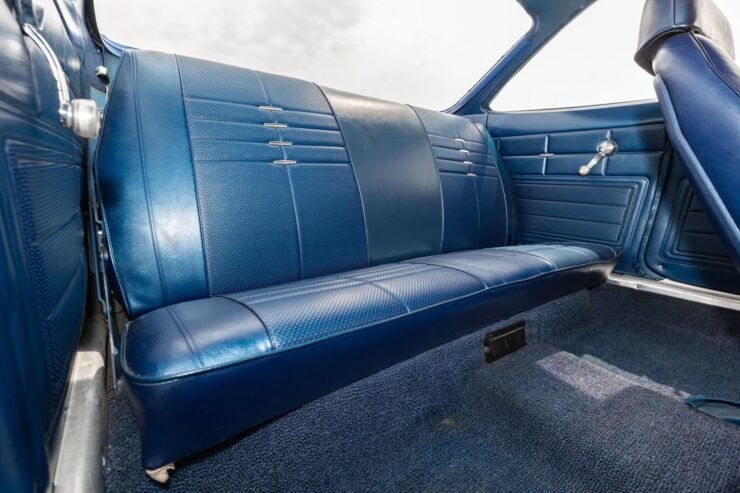
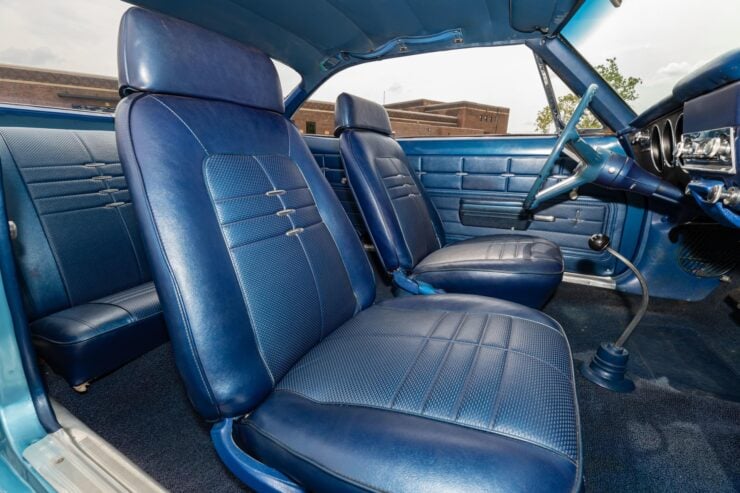
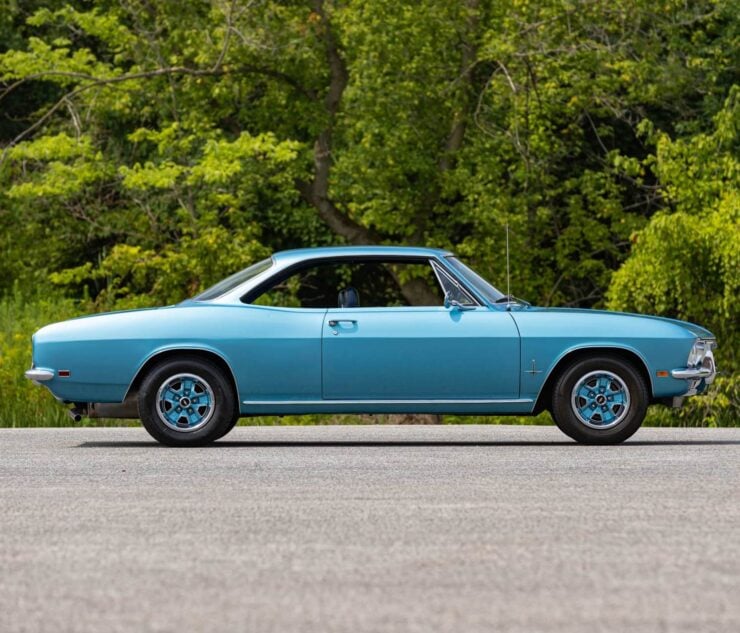
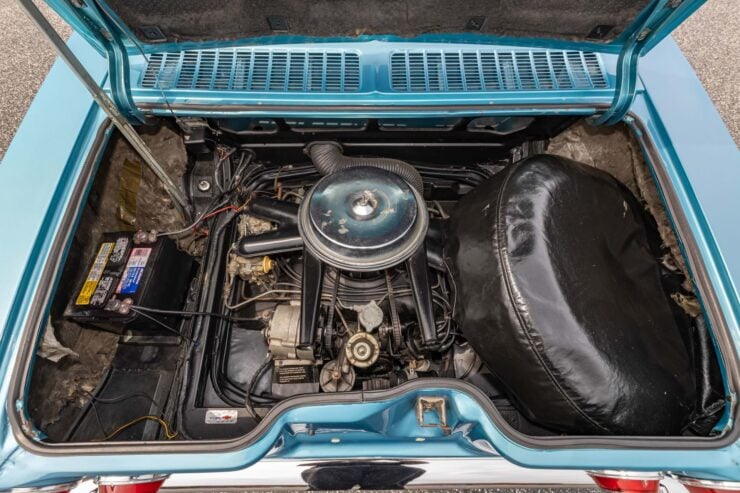
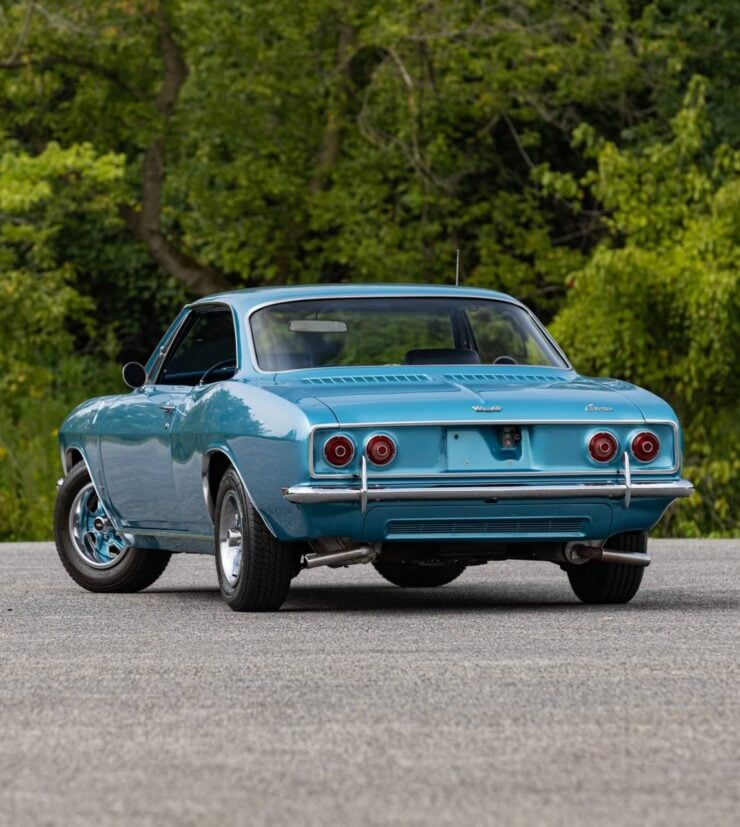
Images courtesy of Mecum

